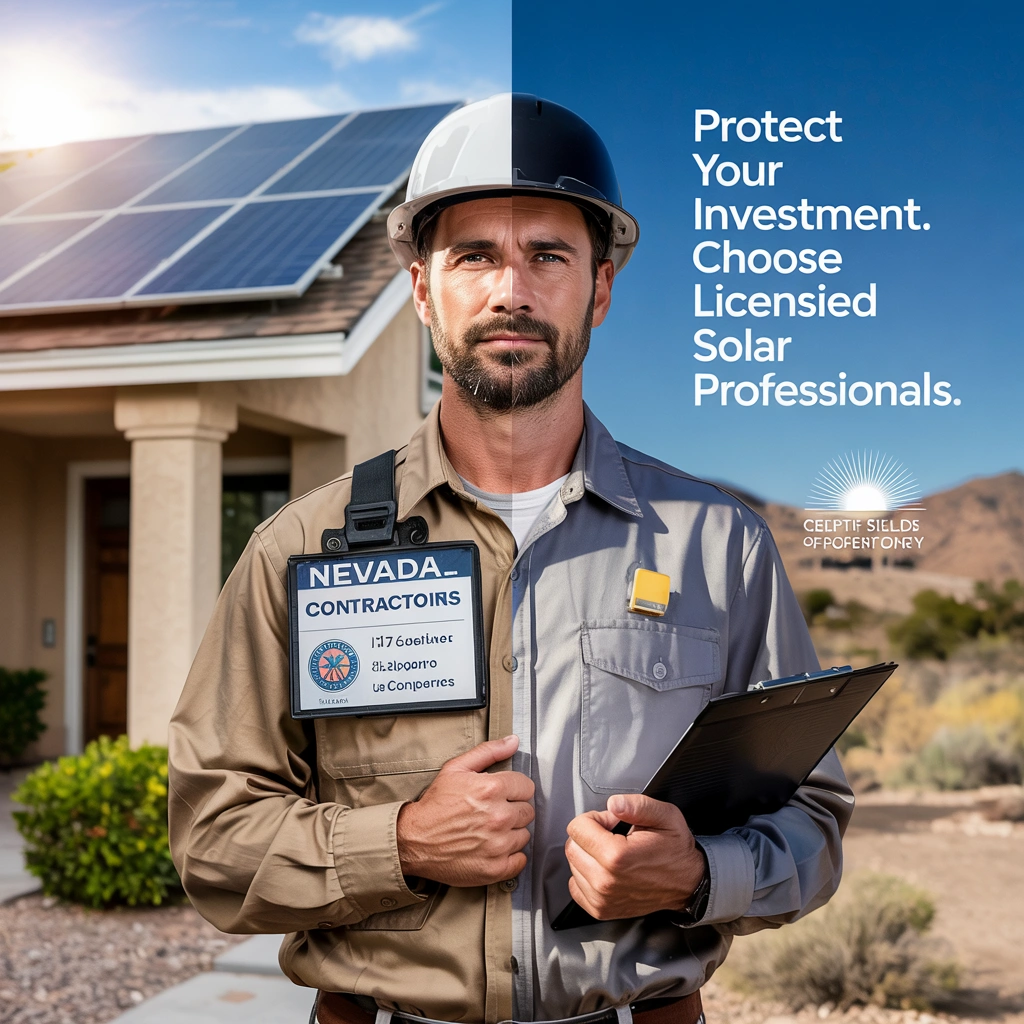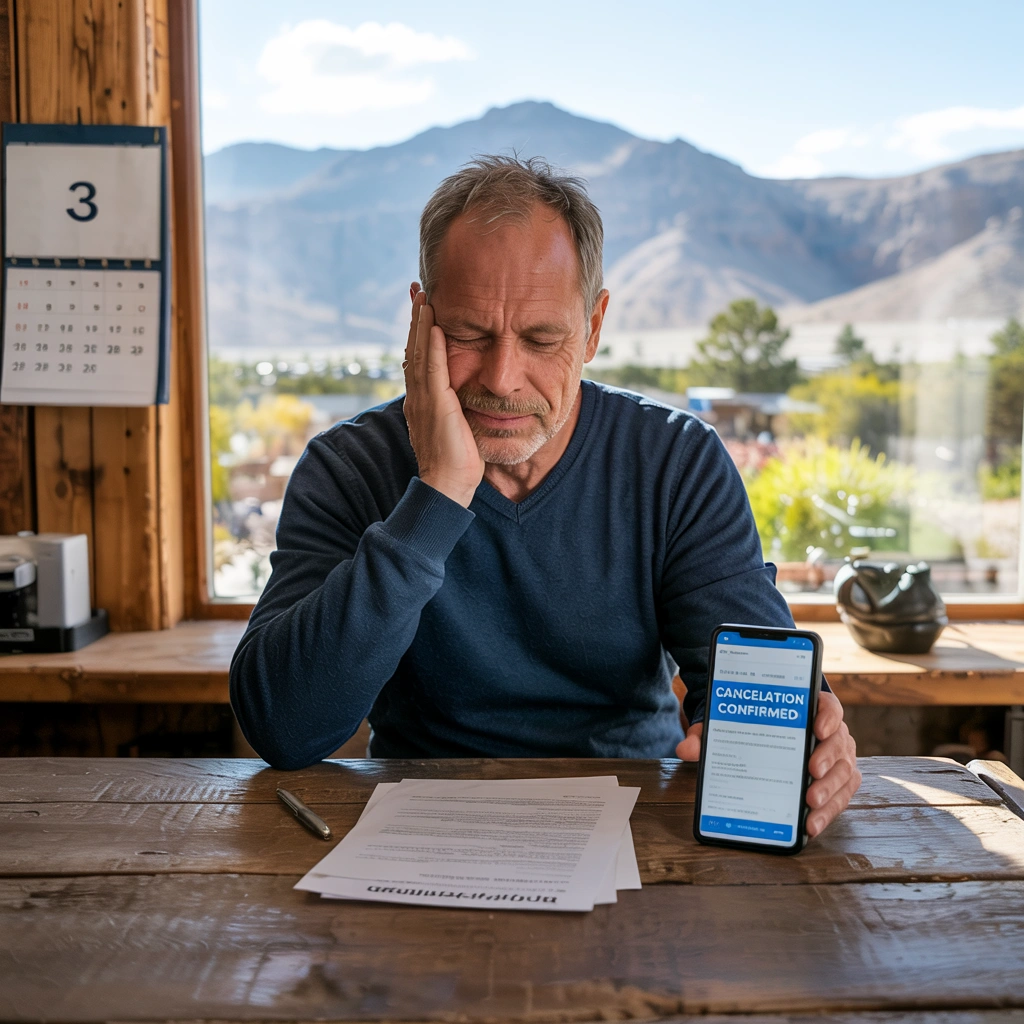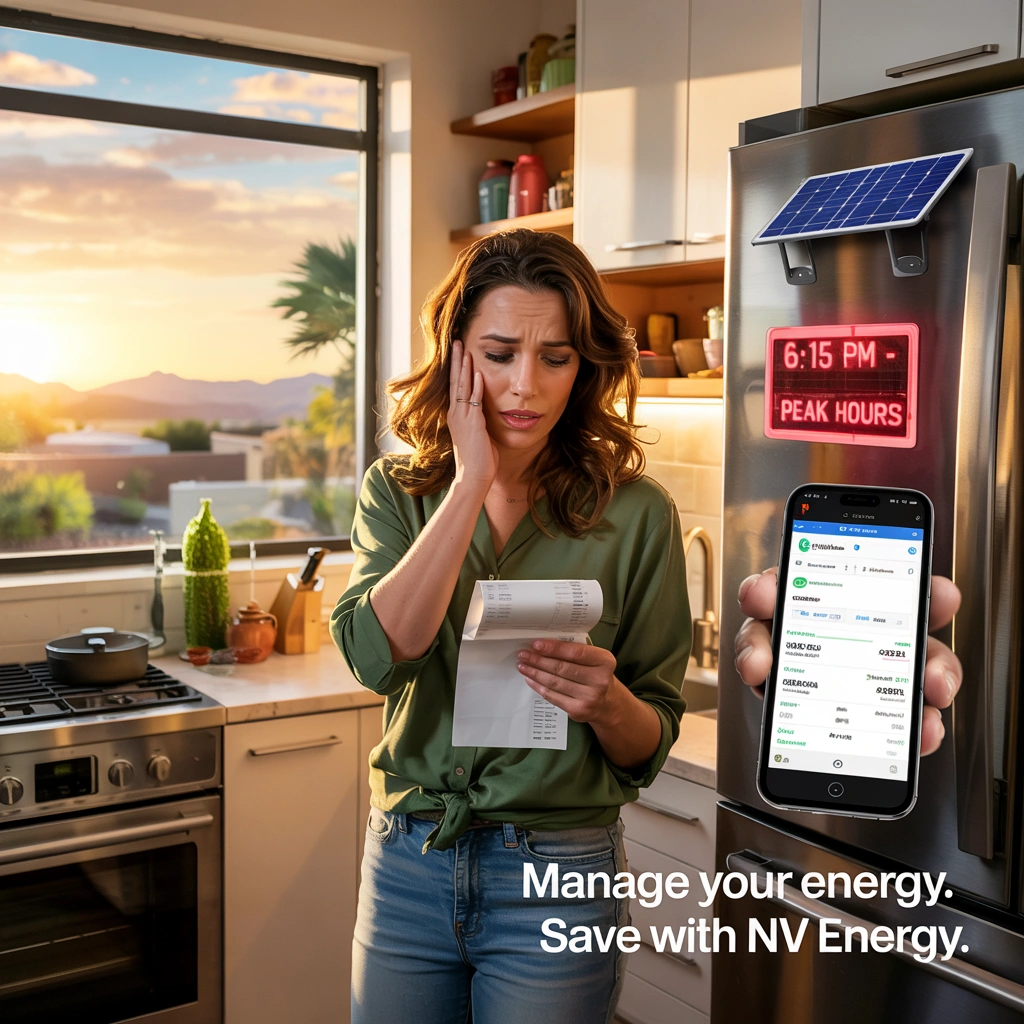
Summary: Nearly one-third of Nevada’s 3,000 annual contractor complaints involve solar companies, but most homeowners don’t know how to spot the four major scam types targeting their neighborhoods—or that recovery funds up to $40,000 exist when things go wrong.
Key Takeaways:
- Nearly one-third of the 3,000 complaints the Nevada State Contractors Board receives annually are related to solar companies, making homeowner education critical for avoiding costly scams
- Four major scam types target Nevada neighborhoods: door-to-door pressure tactics, fake government programs, deceptive lease traps, and fly-by-night operations
- Clark County requires specific permits and inspections that legitimate contractors always follow—scammers typically skip these steps
- Contract protection involves verifying licenses through nscb.nv.gov, understanding warranty terms, and keeping detailed documentation
- Recovery resources exist through the Nevada State Contractors Board’s Residential Recovery Fund, offering up to $40,000 per validated claim
Nevada State Contractors Board Receives Nearly 3,000 Complaints Annually
Nevada’s booming solar market attracts both legitimate installers and fraudulent operators seeking quick profits. Nearly one-third of the 3,000 complaints the Nevada State Contractors Board receives annually are related to solar companies. This staggering number reflects a growing crisis where scammers target Nevada’s abundant sunshine and attractive solar incentives.
The state established a specialized Solar Investigations Unit specifically to address the surge in complaints. This dedicated team handles licensing violations, investigates fraudulent practices, and processes homeowner grievances. Their creation signals how seriously Nevada takes solar scams targeting its residents.
Recent cases highlight the severity of the problem. In April 2024, Derrick Carbajal of Lifetime Solar was sentenced for fraud and deceit after allegedly stealing nearly $250,000 from older homeowners by collecting payments without performing any installation work. M&J Trusted Marketing emphasizes the importance of building legitimate business reputations through transparent communication—qualities that separate honest solar companies from these predatory operations.
Four Major Solar Scams Hitting Nevada Neighborhoods
1. Door-to-Door Pressure Tactics and Fake Urgency Claims
Legitimate solar companies rarely use aggressive door-to-door sales tactics. Scammers arrive unannounced, claiming they’re “working in the neighborhood” and offering special pricing for immediate decisions. They create false urgency by stating that government incentives will expire soon or that they have limited spots available for installations.
These operators pressure homeowners to sign contracts immediately, often refusing to leave contact information or provide written estimates. They may claim permits are included but typically lack proper Nevada State Contractors Board licensing. Warning signs include demands for immediate signatures, refusal to provide references, claims of exclusive utility company partnerships, and pricing that seems too good to be true.
2. Phantom Government Program Schemes
Scammers falsely advertise non-existent government programs that supposedly cover solar installation costs entirely. While legitimate federal tax credits and some state incentives exist, these fraudsters exaggerate benefits and claim exclusive access to special programs. They often request upfront “processing fees” or “application costs” to access these phantom benefits.
While legitimate federal tax credits and some state incentives exist, Nevada homeowners should verify any claimed government programs or incentives through official state websites or the Nevada Public Utilities Commission before making payments. Legitimate solar incentives generally do not require advance payments to access, but some may have specific requirements.
3. Deceptive Solar Lease Traps with Hidden Fees
Some companies offer solar leases with attractive initial terms that hide costly long-term obligations. These contracts may include escalating payments that eventually exceed purchasing costs, hefty early termination fees, and transfer restrictions that complicate home sales.
Lease agreements sometimes contain clauses allowing companies to place liens on properties for unpaid fees. Homeowners discover these hidden terms only after signing contracts, finding themselves locked into unfavorable arrangements that provide minimal savings.
4. Fly-by-Night Company Operations
Temporary operators establish brief local presence through short-term office rentals or virtual addresses. They collect deposits from multiple homeowners, then disappear before installations begin. These companies often lack proper state licensing, insurance coverage, and bonding required for legitimate solar installations.
Homeowners lose deposits and have no recourse when companies vanish. Background checks on company history, permanent addresses, and established local presence help identify these temporary operations.
Solar Warranty Red Flags Every Homeowner Should Know
Understanding Legitimate Panel and Inverter Coverage
Quality solar panels typically carry performance warranties of around 20-25 years and product warranties of around 10-12 years from manufacturers, though these can vary. Inverters usually include coverage ranging from 10-25 years, depending on the type and brand. Legitimate installers provide warranty documentation before installation begins and explain coverage terms clearly.
Reputable companies provide manufacturer contact information and don’t claim exclusive warranty coverage unavailable elsewhere. They explain exactly what’s covered, how to file claims, and what remedies exist if systems underperform. Some companies guarantee specific energy production levels with clear measurement methods and remedy procedures.
Workmanship Warranty Warning Signs
Quality installers provide 5-10 year workmanship warranties covering installation-related issues, including roof leaks, wiring problems, and mounting system failures. Scammers often offer vague “lifetime warranties” without specifying coverage details or may lack insurance and bonding to honor warranty claims.
Warning signs include vague coverage language, excessive exclusions or limitations, no clear claim procedures, and warranties tied to expensive maintenance contracts. Legitimate warranties are straightforward, clearly documented, and backed by licensed, insured companies.
Clark County Solar Installation Requirements
Permit Process and Required Documentation
Clark County requires detailed permit applications for all solar installations. Licensed contractors must submit system plans, electrical diagrams, and structural calculations through the Development Services portal. Required documentation includes site plans showing panel placement, electrical single-line diagrams, structural load calculations, equipment specification sheets, and contractor license verification. Clark County provides online, instant permits via a registration model.
Legitimate contractors handle all permitting requirements and provide homeowners with copies of approved permits. They never begin work without proper permits or attempt to skip required documentation. Homeowners should verify that permits are pulled and approved before allowing any installation work to proceed.
Mandatory Inspection Points
Clark County requires inspections at specific installation milestones to ensure safety and code compliance. Key inspection points include structural attachment verification, electrical connection safety, grounding system compliance, and adherence to local building codes.
Legitimate contractors schedule required inspections and provide homeowners with inspection results. They never skip inspections or attempt to activate systems before receiving final approval. Scammers often avoid inspection requirements, leaving homeowners with non-compliant installations that can affect insurance coverage and home sales.
Verify Solar Contractors Before Signing Anything
1. Check the Nevada State Contractors Board License at nscb.nv.gov
Nevada law requires all solar installers to hold current state contractor licenses. The Nevada State Contractors Board website allows homeowners to verify license status, check for complaints, and confirm insurance coverage. Licensed contractors display license numbers prominently and verify them readily.
Unlicensed operators often claim licenses are “pending” or make excuses for missing documentation. Never work with contractors who cannot provide current, verified licensing information. License verification takes minutes and protects against significant legal and financial risks.
2. Confirm Insurance and Bonding Coverage
Legitimate contractors carry general liability and workers’ compensation insurance plus required bonding. They provide insurance certificates and bonding information upon request without hesitation. Uninsured contractors expose homeowners to liability for property damage and worker injuries.
Request current insurance certificates showing adequate coverage limits. Verify coverage directly with insurance companies if needed. Bonding provides additional protection if contractors fail to complete work or violate contract terms.
3. Research Company Reviews and Complaint Patterns
Check company ratings with the Better Business Bureau and online review platforms. Look for patterns in complaints and examine how companies respond to customer issues. Multiple complaints about similar problems indicate potential systemic issues.
Red flags in reviews include complaints about disappeared companies, billing disputes or hidden fees, poor workmanship or warranty issues, and high-pressure sales tactics. Companies with consistently poor reviews or no established review history warrant additional scrutiny.
Contract Protection and Documentation Requirements
Required Contract Elements and Payment Terms
Solar contracts must include total system costs with itemized breakdowns, equipment specifications, and warranty terms, installation timelines with milestone dates, permit and inspection responsibilities, and performance guarantees with measurement methods. Avoid contracts with vague terms or missing critical information.
Legitimate installers typically request minimal deposits with progress payments tied to completion milestones. Nevada law stipulates that the down payment for any residential project must be either 10 percent of the total contract or $1,000, whichever is less. Use credit cards for deposit payments when possible to maintain payment protections and dispute rights.
Permit Documentation You Must Keep
Clark County solar permits require specific documentation that homeowners should retain permanently. Keep copies of all permit applications, approved plans, inspection reports, and final approvals. This documentation proves legitimate installation procedures and supports warranty claims or future property sales.
Missing permits can complicate home sales and insurance claims. Legitimate contractors provide complete documentation packages and help homeowners understand filing requirements. Maintain organized records throughout the installation process and beyond.
Recovery Resources for Nevada Solar Scam Victims
Nevada State Contractors Board and Residential Recovery Fund
The Nevada State Contractors Board offers financial recourse through the Residential Recovery Fund, which provides up to $40,000 per validated claim for homeowners damaged by licensed contractors who fail to fulfill contract obligations or perform defective work. Remember to verify the contractor’s license before hiring, as the fund only applies to damages caused by licensed contractors.
File complaints with the Contractors Board as soon as problems arise. Document all communications, keep detailed records, and provide supporting evidence for claims. The recovery process takes time, but many homeowners receive partial or full reimbursement for losses.
Attorney General’s Bureau of Consumer Protection
Nevada’s Attorney General Consumer Protection Division investigates fraud cases and pursues legal action against deceptive businesses. They handle complaints about false advertising, contract violations, and fraudulent business practices across multiple industries, including solar. Report scams by calling their hotline at (888) 434-9989.
Report suspected fraud immediately to improve investigation chances and help prevent additional victims. The Attorney General’s office can pursue civil penalties and restitution even when criminal charges aren’t filed.
Public Utilities Commission of Nevada
The Public Utilities Commission handles complaints related to net metering, interconnection issues, and utility-related solar problems. They regulate how utilities interact with solar customers and can resolve disputes about system connections and billing. Contact the PUCN’s Consumer Complaint Resolution Division at (775) 684-6100 for Northern Nevada or (720) 486-2600 for Southern Nevada.
Contact the Commission for issues involving utility cooperation, interconnection delays, or net metering credit problems. They provide mediation services and can order utilities to resolve legitimate customer concerns.
Follow Nevada’s Solar Safety Checklist to Protect Your Investment
Nevada homeowners can protect themselves by following systematic verification steps before committing to solar installations. Start by verifying contractor licensing through state databases and requesting multiple quotes from different companies. Check references from recent installations and review all documentation before signing contracts.
Watch for red flags, including high-pressure sales tactics demanding immediate decisions, door-to-door salespeople without proper identification, requests for large upfront payments or unusual payment methods, claims about exclusive government programs or limited-time offers, and reluctance to provide licensing or insurance information.
Understanding Clark County’s permit requirements helps identify legitimate contractors who welcome inspection processes. Quality installers follow all local requirements, provide detailed documentation, and support customers throughout the installation and warranty periods.
Solar investments should provide decades of clean energy and financial benefits. Taking time for proper verification protects these investments and ensures working with reputable professionals who will support systems throughout their operational lifetime. Nevada’s solar market offers genuine opportunities for homeowners to reduce energy costs and increase property values when approached with appropriate caution and verification procedures.
For businesses looking to build trust and credibility in competitive markets like solar energy, M&J Trusted Marketing provides digital strategies that help legitimate companies differentiate themselves through transparent communication and proven results.
Frequently Asked Questions
How Solar Installation Companies Can Leverage This Content
This informative article, “Protecting Yourself: A Nevada Homeowner’s Guide to Solar Scams & Warranties” can be adapted and repurposed across multiple marketing formats to help increase website traffic for kitchen remodeling services, build trust with potential clients, and differentiate their services in a competitive market. We help with “Boost Your Website Conversions With Client-Focused Solar Installation Insights“ by transforming technical content into powerful marketing campaigns across all digital channels, ensuring maximum reach and engagement with potential customers.







